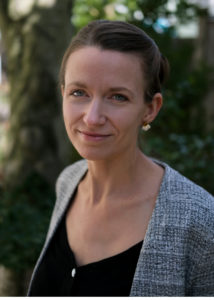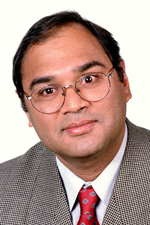CURRENT FACULTY
Scott Adler
 website
website
Infants’ visual, attentional and perceptual development from a neuroscience perspective. Specific topics include the relation between various cognitive processes in young infants’ formation of future-oriented expectations for the spatial, temporal, and content information of visual events; the interface between visual expectations and memory processes; development of mechanisms for selective attention and visual search; development of object recognition; and the processes involved in infants’ control and execution of eye movements.
Lifespan development and the effect of experience on modifying cognitive change across the lifespan. Experiences that are studied include bilingualism and musical expertise. Research methods that are used include behavioural studies of performance and neuroimaging techniques to identify brain correlates of performance. Populations that are investigated include children, young adults, older adults, and patients, including those with dementia. Focus is on the adaptation of cognitive systems to changing experience throughout life.
.
Cognitive science and cognitive neuroscience. Understanding the cognitive and neurophysiological structures and process underlying human reasoning and problem solving abilities. Verbal protocol analysis studies of normal and patient populations, computational modeling, and neuroimaging techniques involving Postron Emission Tomography (PET) and Functional Magnetic Resonance Imaging (FMRI). Bridging the “gap” between cognitive and neurophysiological vocabularies.
Cognitive development and developmental cognitive neuroscience with a focus on learning and memory. Specific research interests include memory for past events and their temporal and spatial context, the factors that support memory development including semantic memory and brain development. Studies involve both lab-based and naturalistic events, and learning in naturalistic settings including science centres and museums. Methods include behavioural assessments, eye tracking, ERP and neuroimaging.
.
Lara Pierce
website
I use developmental cognitive neuroscience tools to explore how variation in the early environment impacts the development of neural systems. I use language as a model system, and identify mechanisms by which specific variables (e.g., those associated with socioeconomic variation and early life stress) shape both early neurodevelopment and the early language environment. I investigate the role that individual differences (both environmental and physiological) play in the development of language and cognitive abilities. I aim to uncover implications of early neurodevelopmental variation for later learning. Methods include electroencephalography (EEG/ERP), language recordings, and behavioural assessments in infants and children.
My primary research interests are in the areas of cognitive neuroscience, functional neuroimaging (MRI), and neurocognitive development and aging. My program of research broadly investigates the neurocognitive specialization, organization, and interaction of brain systems that underlie human conceptual processing, and the related processes of memory and perceptual abstraction. I use a combination of behavioral, neuropsychological, neuroimaging, and neurostimulation methodologies (e.g., MRI, TMS) to elucidate how cognitive abstraction underlies our ability to grasp, retain, and retrieve information in the form of conceptual knowledge. I also investigate how these processes are affected by healthy aging, and by developmental and neurological disorders.
.
Melody Wiseheart

website
Educational applications of cognitive psychology in real-world environments such as classrooms. Spacing effect influences on acquisition of critical thinking skills and music learning. Changes in executive function across the lifespan, including processing speed, working memory, inhibition, and task switching. Effects of bilingualism on cognition. Influences of art, music, and dance training in typically developing and patient populations, including dementia.
AFFILIATED FACULTY
(accepting new students through the DS program)
Jennifer Steele: Dr. Steele's program of research aims to increase our basic, applied, and theoretical understanding of the development and consequences of racial and gender biases in childhood. Her research is guided by the belief that if we wish to create a more equitable society, it is critical to understand the developmental foundation and malleability of these group-based associations.
Peter Kohler: Dr. Kohler's research focuses on the domain of mid-level visual processing, which begins in primary visual cortex ~100 ms after stimulus onset, and then unfolds over the next several hundred milliseconds, in several, mostly topographically organized visual brain areas. In this deceptively short time span, the visual system infers information about the shape, location and movement of the elements in the visual world, but also resolves the perceptual organization of the scene: figure-ground relationships, perceptual grouping, constancy operations and much more. We use behavioural methods and brain imaging techniques including EEG and functional MRI to study how these processes are realized across interdependent neural populations at multiple stages of visual processing, and how representations of visual scenes and objects develop over early childhood and across the lifespan.
EMERITUS FACULTY
(not accepting new students)
Anne Russon
Comparative/evolutionary studies of nonhuman primates, especially the great apes (orangutans, chimpanzees) and especially cognitive development. Major topics of interest include: imitation and other forms of social learning, tool use, ecological problem solving (arboreal and foraging problems), and the evolution of primate and great ape intelligence. Field studies of various facets of orangutan intelligence and cognitive ecology in free-ranging ex-captive orangutans in Indonesian Borneo.
Janice Johnson
Cognitive development, individual differences, and cognitive process analysis. Culture-fair assessment of cognitive capacity in mainstream and special developmental samples (e.g., deaf, gifted, ESL, language delayed); children’s intuitive reasoning in mathematics; measurement of executive functions in children and adults; cognitive style and language processing; cognitive-developmental factors in metaphor comprehension; mental arousal/motivation as factors in cognitive performance.
Juan Pascual-Leone
Cognitive processes; neuropsychology of event-related brain potentials; developmental processes; measurement of mental attentional capacity; human learning, individual differences and styles; infancy, adulthood and aging. Logical methods of task analysis and constructive epistemology; a neo-Piagetian approach to cognitive processes, intelligence/cognitive style, development and its neuropsychology, semantic psycholinguistics and adult development.









